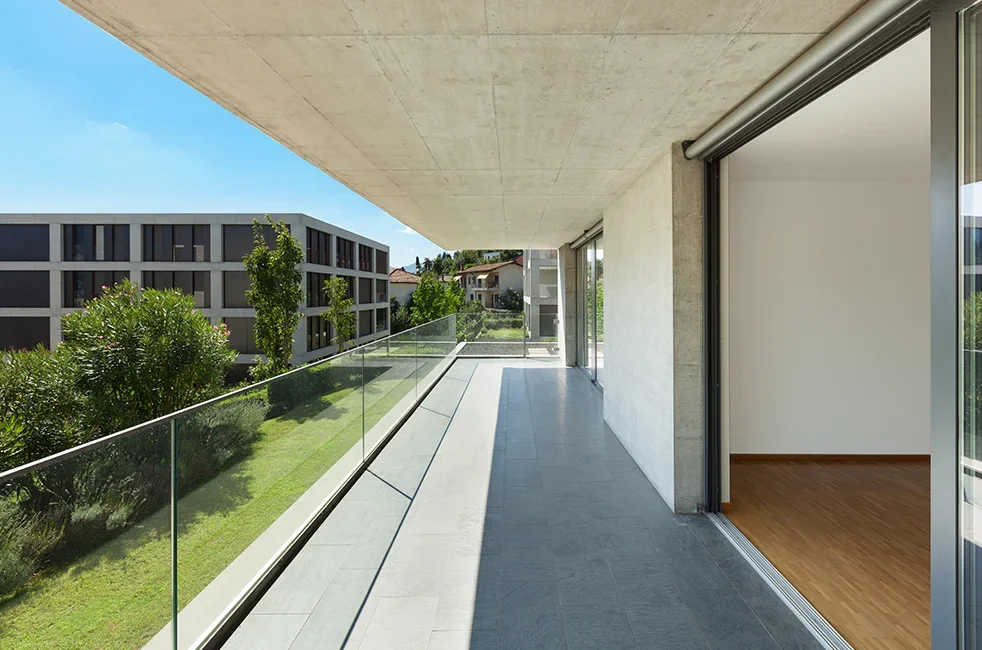Asphalt waterproofing: Is it the best option to protect your home?
Asphalt waterproofing is one of the most widely used options in construction to prevent water seepage on roofs, terraces and other spaces exposed to the elements. This system is based on the application of products such as asphalt fabric, asphalt membrane, or asphalt waterproofing paint to create a barrier that prevents the passage of water. However, although this type of asphalt waterproofing is popular, it has several limitations that you should be aware of before opting for it.

Types of asphalt waterproofing
Roofing felt
It is a material composed of a layer of asphalt and other components that adhere to the surface. Its main disadvantage is that it degrades over time and requires special tools for its installation, such as the use of a blowtorch and butane, which increases the risk on site.
Asphalt membrane
Similar to fabric, but with a reinforcement that gives it greater strength. However, its durability is limited, and it often needs an additional compression layer to be effective, which increases the cost of installation.
Asphalt waterproofing paint
Although easy to apply, this option has a shorter lifespan and may require frequent reapplications to maintain its effectiveness, increasing long-term maintenance.
Comparative
Traditional asphalt waterproofing
- Low durability
- Complex installation
- Incompatibility with some materials
Revestech Solution
- Increased Durability
- Quick Installation and No Decommissioning
- Extreme Weather Resistance
- Ecological and Sustainable
Disadvantages of asphalt waterproofing

Low durability
Over time, asphalt membrane and asphalt waterproofing paint deteriorate due to exposure to weather conditions, which can cause cracks and crevices that allow leaks.

Complex installation
The installation of asphalt products, such as asphalt membrane, requires specific tools and is a time-consuming process. In addition, an additional compression layer needs to be applied, which increases costs.

Incompatibility with some materials
In many cases, asphalt sheets can have problems of adhesion or reaction with certain types of pavements, which reduces their effectiveness.
The advantages of Revestech over asphalt waterproofing
While asphalt waterproofing is common, Revestech's waterproofing membranes offer a much more efficient and durable solution. Here's why:

Increased durability
Unlike asphalt membrane, Revestech systems have a lifespan of more than 50 years, with no risk of degradation. This guarantees long-term protection for your projects.

Quick installation without decommissioning
Revestech's waterproofing membranes can be installed directly on top of the existing pavement, without the need for de-bonding or applying additional compression layers. This significantly reduces the time and cost of the work.

Resistance to extreme climates
Unlike asphalt waterproofing paint, Revestech products are designed to withstand adverse weather conditions, such as sudden temperature changes, without losing their effectiveness.

Ecological and sustainable
Revestech waterproofing systems are manufactured from recyclable materials, making them a more sustainable and environmentally friendly option, something that traditional asphalt waterproofing cannot guarantee.
Although asphalt waterproofing has been widely used, its limitations in terms of durability, installation costs and long-term maintenance make it less attractive than Revestech's advanced solutions. Our waterproofing membranes offer superior protection, easier installation, and greater sustainability—ensuring the safety and watertightness of your project for decades.
Protect your home or project with the most efficient waterproofing solutions on the market - discover Revestech's waterproofing membranes today!
Frequently asked questions
What is asphalt waterproofing and how does it differ from other types of waterproofing?
Asphalt waterproofing uses asphalt-derived materials to create a barrier against water. However, it is less durable and more costly to maintain than Revestech’s waterproofing membranes, which offer more efficient and long-lasting protection.
What are the main applications of asphalt waterproofing?
Asphalt waterproofing is used on decks, roofs and terraces, but its installation is complex and requires constant maintenance. Revestech’s waterproofing membranes are easier to install and offer greater resistance in these same applications.
What types of asphalt products are used for waterproofing?
The main asphalt products are roofing felt, asphalt membrane and asphalt waterproofing paint. Unlike these, Revestech membranes do not require additional layers or complex tools, ensuring faster and more durable installation.
Is asphalt waterproofing suitable for all types of surfaces (roofs, basements, terraces, etc.)?
Although used on a variety of surfaces, asphalt waterproofing is not always the best option. Revestech membranes are much more versatile, suitable for any surface, and ensure more effective protection.
How long does an asphalt waterproofing system last?
Asphalt waterproofing has a limited lifespan of 5 years, deteriorating over time. In contrast, Revestech’s waterproofing membranes offer a service life of over 50 years, with no need for frequent replacements.
Is asphalt waterproofing resistant to extreme temperatures and adverse weather conditions?
Asphalt-based products can develop cracks in extreme climates. Revestech membranes, on the other hand, are designed to withstand extreme temperatures and weather changes without losing their effectiveness.
What maintenance is required for a surface waterproofed with asphalt?
Asphalt waterproofing requires regular maintenance, such as repairs and reapplications. With Revestech membranes, no maintenance is needed, as their high durability prevents future issues.
What are the advantages and disadvantages of asphalt waterproofing compared to other methods?
Asphalt waterproofing is cost-effective in the short term, but it requires more maintenance and has a shorter lifespan. Revestech membranes, on the other hand, offer easier installation, greater resistance, and long-term, hassle-free protection. Economically, they are similarly priced.



